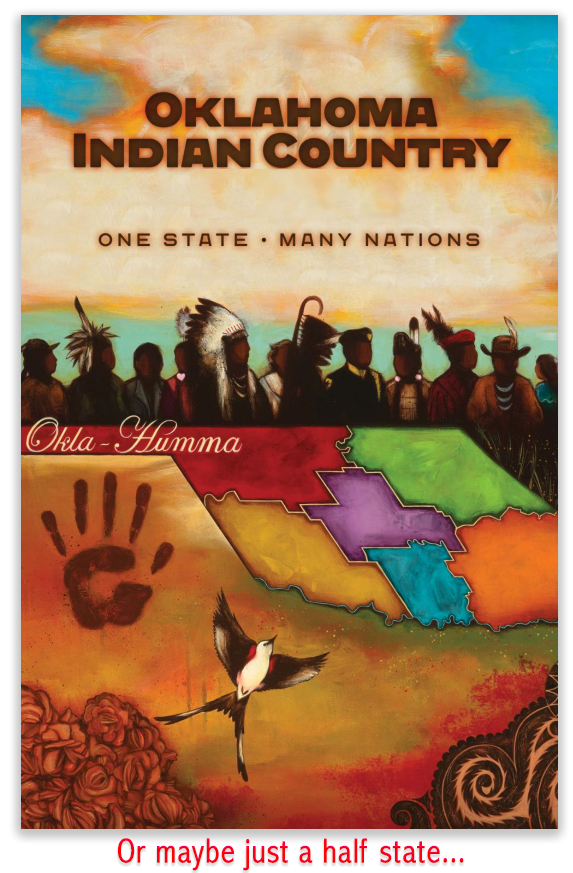We post news and comment on federal criminal justice issues, focused primarily on trial and post-conviction matters, legislative initiatives, and sentencing issues.

SUPREME COURT HEARS TWO CONSEQUENTIAL CASES
The Supreme Court heard oral arguments last week on forfeiture and whether someone screwed up in leaving a big chunk of Oklahoma as Indian Country.
 Tyson Timbs, an Indiana man who lost his 2012 Land Rover after he pleaded guilty to drug charges. The state argued that it could seize the car because it had been used to transport drugs, but Tyson countered that requiring him to forfeit the $42,000 car – which he had bought with inheritance money – would violate the 8th Amendment’s ban on excessive fines, because the value of the vehicle was nearly four times the maximum fine that could have been imposed. The question before Court in Timbs v. Indiana was simply whether the 8th Amendment’s prohibition of excessive fines applies to the states at all.
Tyson Timbs, an Indiana man who lost his 2012 Land Rover after he pleaded guilty to drug charges. The state argued that it could seize the car because it had been used to transport drugs, but Tyson countered that requiring him to forfeit the $42,000 car – which he had bought with inheritance money – would violate the 8th Amendment’s ban on excessive fines, because the value of the vehicle was nearly four times the maximum fine that could have been imposed. The question before Court in Timbs v. Indiana was simply whether the 8th Amendment’s prohibition of excessive fines applies to the states at all.
The justices appeared to agree that it does. However, there is wide disagreement on what kind of forfeiture is excessive. Federal defendants can hope for the Court to define when forfeiture is too much, but observers think that the justices are likely to say that excessive fines clause applies to the states, but not much more.
Carpenter v. Murphy asked whether a large part of eastern Oklahoma, including where Patrick Murphy is alleged to have committed murder and the entire City of Tulsa, still lies within the borders of a reservation granted to the Creek Nation when it was forcibly relocated to the Oklahoma Territory in the early 19th century. If so, then Oklahoma had no jurisdiction to try Murphy: The Major Crimes Act would give exclusive jurisdiction over that murder to federal authorities, because Murphy is a Native American. The formal procedures that Congress followed when it organized the state of Oklahoma did not explicitly terminate the reservation on which the crime occurred. Because the Supreme Court’s earlier cases have emphasized the importance of statutory language explicitly terminating a reservation, the lower court concluded that the reservation remains in place.
The case is important to a number of federal defendants, whose prior convictions could be wiped out, affecting not only ACCA convictions and 21 USC 851 drug enhancements, but Guidelines criminal histories as well.
 The Court is clearly grappling with the law that plainly makes eastern Oklahoma Indian Country versus the wholesale dislocation that upholding the Tenth Circuit would cause. Yesterday afternoon, the Court took the unusual step of calling for additional briefing on two questions that suggest it is looking for a creative way to decider the case. The first is whether some statute out there may authorize Oklahoma prosecutions “irrespective of the area’s reservation status.” If Oklahoma has such authority, then the criminal-law disruption from recognizing the reservations as still existing would be substantially less.
The Court is clearly grappling with the law that plainly makes eastern Oklahoma Indian Country versus the wholesale dislocation that upholding the Tenth Circuit would cause. Yesterday afternoon, the Court took the unusual step of calling for additional briefing on two questions that suggest it is looking for a creative way to decider the case. The first is whether some statute out there may authorize Oklahoma prosecutions “irrespective of the area’s reservation status.” If Oklahoma has such authority, then the criminal-law disruption from recognizing the reservations as still existing would be substantially less.
The second question is whether there “are circumstances” in which land that still qualifies as Indian Country might nevertheless not be “Indian country as set forth in 18 USC 1151(a).” If so, the Major Crimes Act would not divest Oklahoma of the authority it has exercised through the years to prosecute offenses committed by Native Americans.
SCOTUSBlog.com, Court appears ready to rule that Constitution’s bar on excessive fines applies to the states (Nov. 28, 2018)
SCOTUSBlog.com, Justices dubious about ramifications of broad Indian reservation in Oklahoma (Nov. 27, 2018)
The Atlantic, Who owns Oklahoma? (Nov. 20, 2018)
– Thomas L. Root

